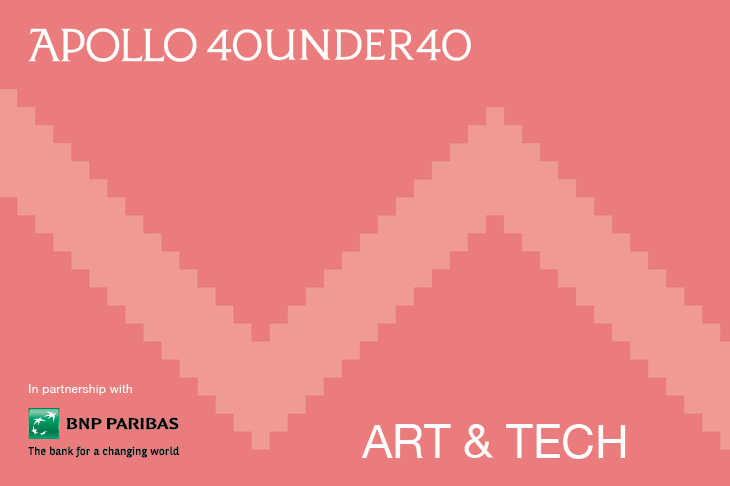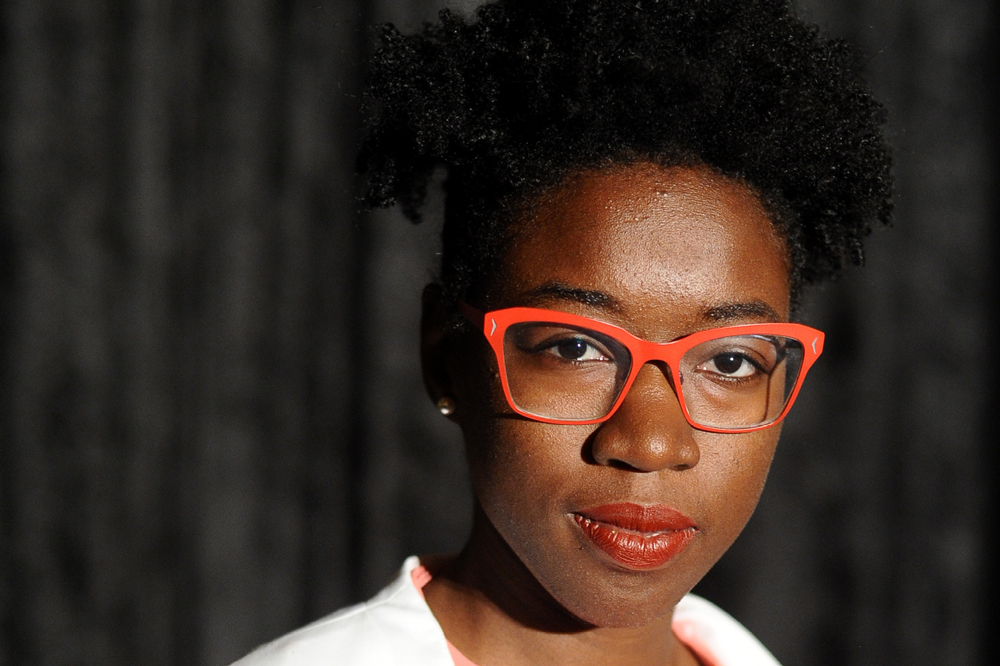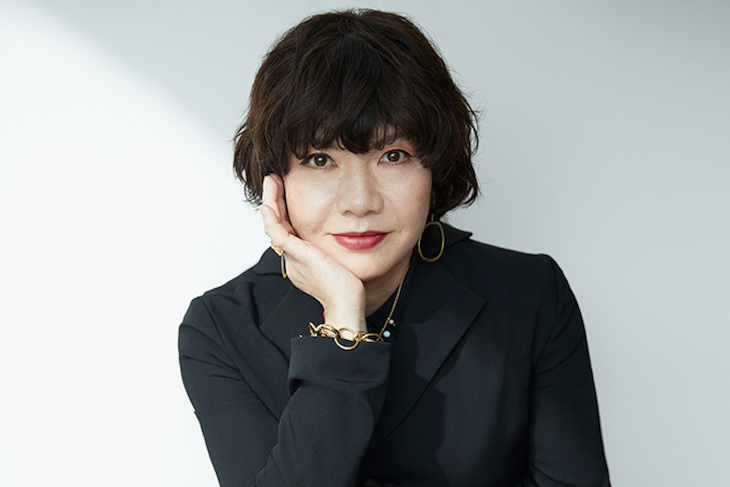Apollo is proud to present this year’s Apollo 40 Under 40 list, the eighth edition of the project and the first to focus on the theme of Art & Tech. It comes at a time when new technologies are transforming how art is made and experienced at an unprecedented pace – with artists playing a vital role in communicating, scrutinising and taking creative advantage of these changes. The 40 individuals and partnerships selected for the list – all under the age of 40 – are expanding the possibilities presented by new tech to art and heritage across the world. Below, Samuel Reilly and Gabrielle Schwarz, lead editors of the Apollo 40 Under 40 Art & Tech, introduce the project.
When, in New York in the early 1970s, the artist Shigeko Kubota began to experiment with a portable video recorder (the Sony Portapak – the first commercially available product of its kind), she likened the technology to ‘a new paintbrush’. The emergence of digital video and other forms of new media has often been seen as a watershed in art history – but, in fact, artists have always been quick to adopt the latest technologies, as means of exploring and reimagining the world around them.
Today the available technologies have developed far beyond what anyone 50 – or even perhaps five – years ago could have dreamed of. From virtual and augmented reality (VR and AR) to blockchain, new tech has transformed how art is made and experienced – and how it is exhibited, collected, preserved. Many of these changes have been accelerated by the Covid-19 pandemic, with its attendant glut of digital exhibitions, auctions, fairs, and YouTube video series. But these temporary ‘fixes’ have also served up a lesson for an increasingly globalised, and fragmented, art world, underlining how technology can connect us when we are physically separated – and also make art more accessible.
With the launch of the Apollo 40 Under 40 Art & Tech, we are pleased to celebrate 40 individuals and partnerships, all under the age of 40, who are working at the intersection of art and technology, forging new paths in both fields. This is the first time the Apollo 40 Under 40 has taken a theme rather than a geographical region as its focus. The 40 have been selected from a longlist – compiled from nominations provided by dozens of experts – by a panel of six distinguished judges: Joel Ferree, Mami Kataoka, Richard Lindsay, Adam Lowe, Suzanne Treister, and Karen Wong. We are greatly indebted to all for their expertise, and to Jo Lawson-Tancred, consulting editor on the Apollo 40 Under 40 Art & Tech, for all of her research and advice, as well as to the sponsor for this year’s edition of the project – the leading global bank BNP Paribas.
The Apollo 40 Under 40 Art & Tech aims to reflect the widest possible range of perspectives on, and approaches to, the relationship between art and technology – even if a list of only 40 individuals or partnerships is by design, and of necessity, selective. The list includes new media artists, curators and collectors as well as those creating digital tools for museums or preserving cultural heritage. The recent rise of NFTs is reflected here, even if it may be too soon to tell what their long-term impact may be. We have omitted those individuals whose achievements have been marked in previous editions of the Apollo 40 Under 40, with the exception of one collector who has now established a new museum.
For many of the ‘Artists’ on the list, tech is not just a tool but also a subject of enquiry and critique. The work of the artist who has had their name legally changed to American Artist examines how racial biases are built into new technologies; for their show at the Queens Museum in 2020, they created a mobile app that collated information on internet surveillance and predictive policing algorithms. Across the list there is a mix of cutting-edge projects and more low-fi approaches, from Jakob Kudsk Steensen’s VR environments to Meriem Bennani’s absurdist video series on Instagram.
The curators, critics and scholars who make up the ‘Thinkers’ also offer valuable reflections on art and technology. UK-based academic Jenny Bulstrode, for example, studies cross-cultural encounters in industrial technology and sciences; one recent project looked at West African metallurgy and British industry. In New York, Salome Asega has recently been appointed director of New Inc, the world’s first museum-led incubator for art, design, and technology; in Berlin, the Hong Kong-born theorist Yuk Hui explores how new technologies can change what we consider to be art in the first place.
Many of the most influential innovations have emerged in commercial contexts. This year’s ‘Business’ list includes a number of entrepreneurs who are rethinking the art world – take, for example, Edouard Gouin and Clément Ouizille, the French founders of a company that uses algorithms to price shipments of artworks. The list also includes gallerists, with digital and physical spaces, who have fostered a prosperous market for new and experimental art forms.
It has been remarkable to witness the speed and enthusiasm with which the art world has embraced the possibilities of new and emerging technologies. This is in no small part thanks to the work of the ‘Patrons & Advocates’, from collectors and philanthropists to those who have spearheaded non-profit initiatives. Michael Xufu Huang is celebrated here for co-founding the X Museum for Chinese contemporary art in Beijing, which launched in 2020 with an interactive digital exhibition. Lauren Lee McCarthy, an acclaimed artist in her own right, appears here for her work improving access and diversity in the fields of art and coding.
Biographies of all those featured in the Apollo 40 Under 40 Art & Tech, as well as of the judges, are now live on the Apollo website. So too are interviews with four of these individuals, which will be joined by a talk and podcasts in the coming months. We hope that you enjoy finding out more about these inspirational young people, whose work today is establishing the foundations of tomorrow’s art world.
Samuel Reilly, editorial assistant, and Gabrielle Schwarz, web editor, Apollo. Explore the entire list in depth here.
Unlimited access from just $16 every 3 months
Subscribe to get unlimited and exclusive access to the top art stories, interviews and exhibition reviews.








